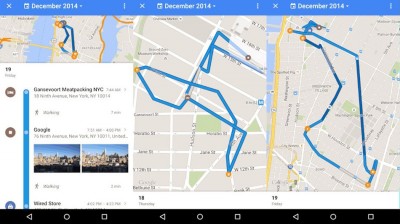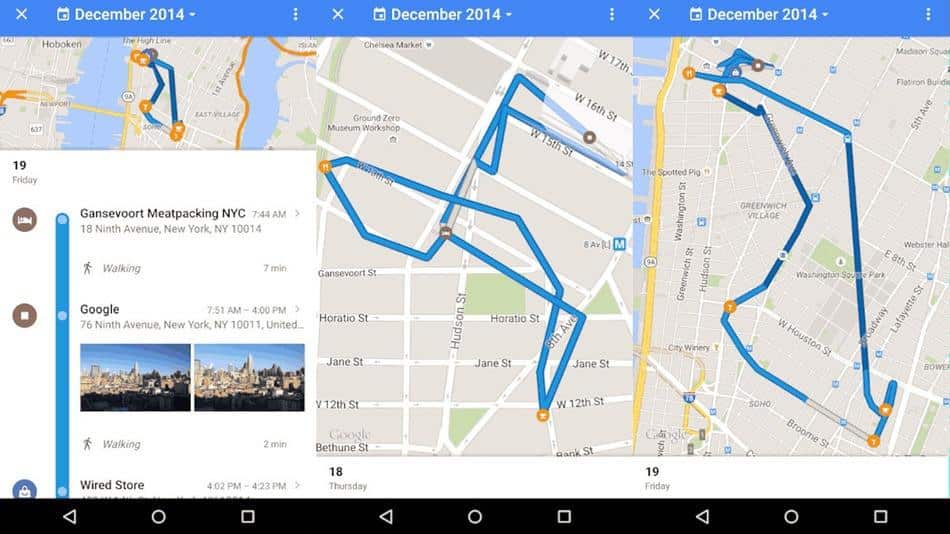
Google now has the capability to track your movements in the real world and store it virtually forever. A new feature in Google Maps called “Your Timeline” enables the search giant to follow every place you’ve been, store it, and then show it to you on a personalized map.
Your Timeline allows users of smart phones and other devices powered by Google’s Android system to track all of their movements. It also works on laptops and desktops.
“The feature shows you how much user data Google can collect about an individual and how it can correlate that information with data obtained from other services, such as Google Photos,” BGR.com Tech blogger Chris Smith wrote.
Learn How To Become Invisible In Today’s Surveillance State!
Most Google users know that Google Maps can pinpoint a location using an address or your GPS location. Your Timeline creates a stored graphic outlining a person’s movement based upon Google Maps locations. For example, it could show the route you take from your home to work every day or the route your child takes to school. Or it show you that restaurant location you visited July 4th you can’t remember.
Tech bloggers like Smith think it can also be used to monitor other activities, such as purchases you might make or pictures you can take during your movements. Google perhaps could determine which stores you shop at, what church you attend and other personal information.
How to Turn Google’s Tracking Off
Fortunately, Your Timeline, like most Google features, can be easily turned off.
On Android devices:
- Open the App drawer
- Select Settings and Location
- Find Google Location Settings.
- Switch off Location Reporting
- Switch off Location History.
- Under Location History, select Delete Location History. This will eliminate the record of locations.
The function is not yet available on Apple devices.
“The app may be eye-opening if you do not realize how much data Google could be collecting already about you,” The Wall Street Journal reported. “It also presents some privacy concerns. Imagine if someone else accessed your phone or computer. If every place you go on a daily basis is so easily accessible, you may want to be more careful about sharing your password with a significant other.”
Is this a cool helpful feature, or another loss for privacy? Share your thoughts in the section below:
You’re Being Watched: 7 Sneaky Ways The Government Is Tracking Your Every Move. Read More Here.









